13 Things I Wish I Knew BEFORE Visiting Uzbekistan
8 min readThis guest post is by Saskia.
Uzbekistan is known for its stunning architecture, the legendary Silk Road and an awesome blend of old and new. In some places it really feels like time stood still. The people are welcoming and friendly, and Uzbek cuisine is incredibly flavorful, with dishes like plov (rice with mutton and veggies) and manti (dumplings with pumpkin or meat).
While exploring Uzbekistan I noticed a few things I wish I knew before traveling to Uzbekistan. To make sure you have an awesome time in this Central Asian gem, here are 13 things I wish I knew before visiting Uzbekistan:
1. Uzbekistan is extremely safe
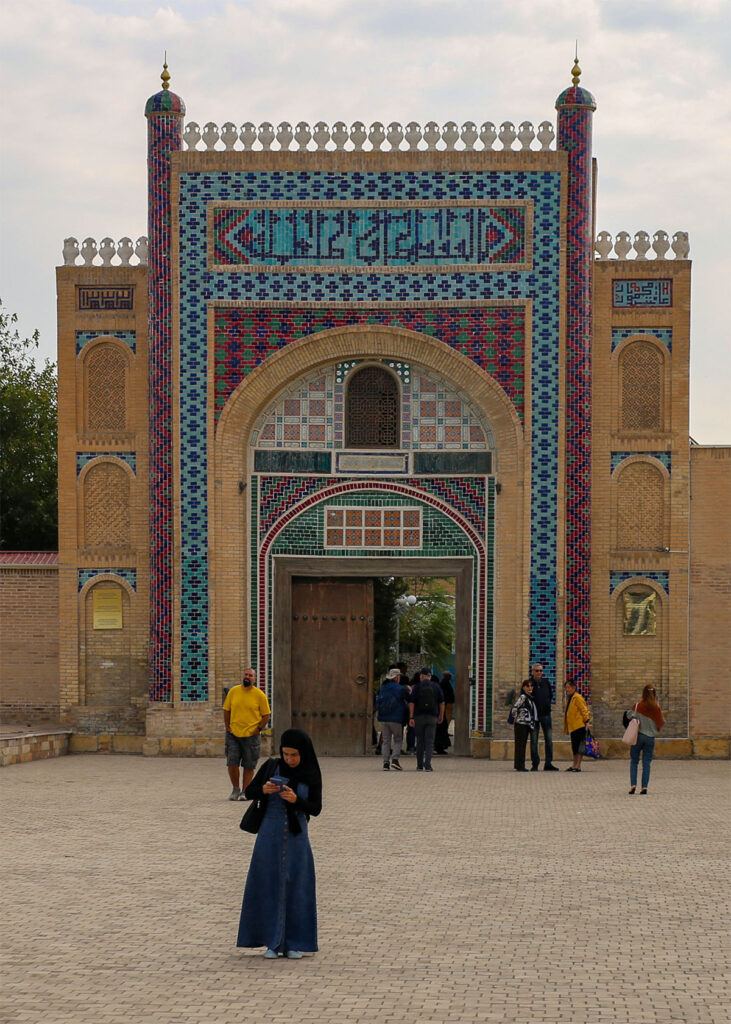
I’ve never felt more safe in a country. Having visited 45+ countries, I believe that counts for something. I walked around with my camera from dusk ‘till dawn and I never felt even remotely at risk. Even in the subway in Tashkent I felt free enough to wear it around my neck, instead of stuffing it in my backpack and wearing it on the front.
While traveling through other parts of Asia with my family, we always felt very welcome, but the people of Uzbekistan really stand out for me. They offer you food when sitting in a park, will walk you to a bus stop or ticket booth without looking for a tip and a polite “no” to a seller or driver clearly means “no”. They’ll simply smile and wish you a good day. It was really refreshing!
And in my entire 9 days here, I never encountered a tourist scam. In fact, the first days I had some trouble figuring out how much to tip a driver and twice I was told I gave too much and they returned some of the money. And I’m not talking big bucks here. In both cases I gave them less than $5 in Uzbek SOM.
2. Uzbekistan is crazy cheap
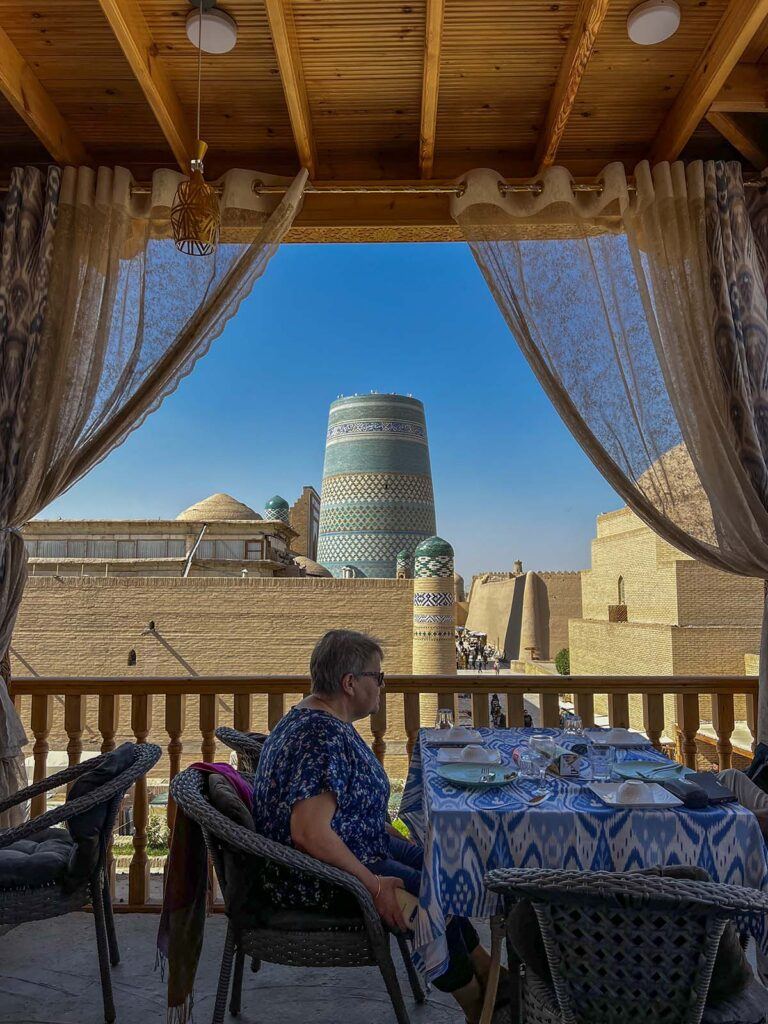
Uzbekistan is known to be one of the cheapest countries in the world. Even in the fanciest of restaurants you’ll rarely spend more than $20 for 2 courses and that’s including drinks!
Local food like plov or dumplings will cost between $2 to $5. The subway in Tashkent costs $1 for a day ticket and museum entry will generally cost around $2. And don’t be afraid to splurge on a cab, because a ride across town will never cost more than $4.
There are some exceptions, though. Firstly the entrance fee to the historical sites in Khiva. You’ll pay a whopping $12 to visit most of the sites and an extra $8 to visit the minaret or an extra $2 for the Pahlavon Mahmud Mausoleum. This might all sound cheap, but not when you compare it with prices in other cities in Uzbekistan.
Accommodation is the other exception. For 3-star hotels located in the city center, you’ll pay between $50-$70, which will get you a basic breakfast, crappy wifi and a thin mattress.
3. English isn’t common (yet)
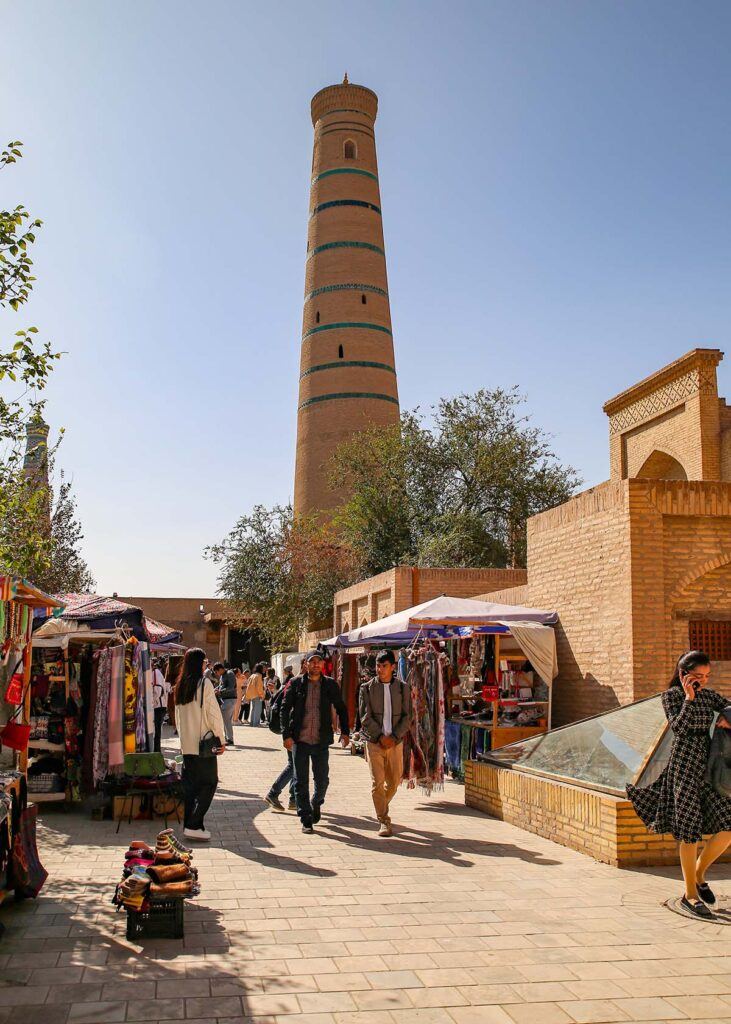
While most personnel in hotels will speak basic English and you can easily order in English at restaurants in touristy areas, only a small percentage of Uzbeks speak English. I spoke to some students who speak English very well, but at most places outside of the touristy areas I had to use Google Translate or communicate with my hands.
If you speak Russian, you’ll have no problem communicating. At most schools kids learn the Russian language and I saw a lot of Russian schools in the bigger cities in Uzbekistan.
4. Don’t drink the boiled water on the train
The water from the tap in Uzbekistan is not safe to drink. Only drink filtered or bottled water. And also avoid drinking boiled water on the trains.
Before taking the train from Khiva to Bukhara, I read that it’s safe to use the boiled water from the huge dispensers on the train to make noodles or tea. Every blog post I read mentioned that you should buy noodles for $0.20 at the train station and use the boiled water dispenser on the train to make them. I followed their lead.
3 hours after finishing my noodles I got sick. My hotel provided me with lots of bananas and that’s when they told me that travelers often get sick from drinking the boiled water on the train. Most people recover within 24-48 hours, while others don’t leave their room for 4 days.
To be on the safe side, refrain drinking from the boiled water dispensers on the Uzbek trains. There’s nothing more annoying than laying in bed sick, while you should be out exploring.
5. Bring some cash
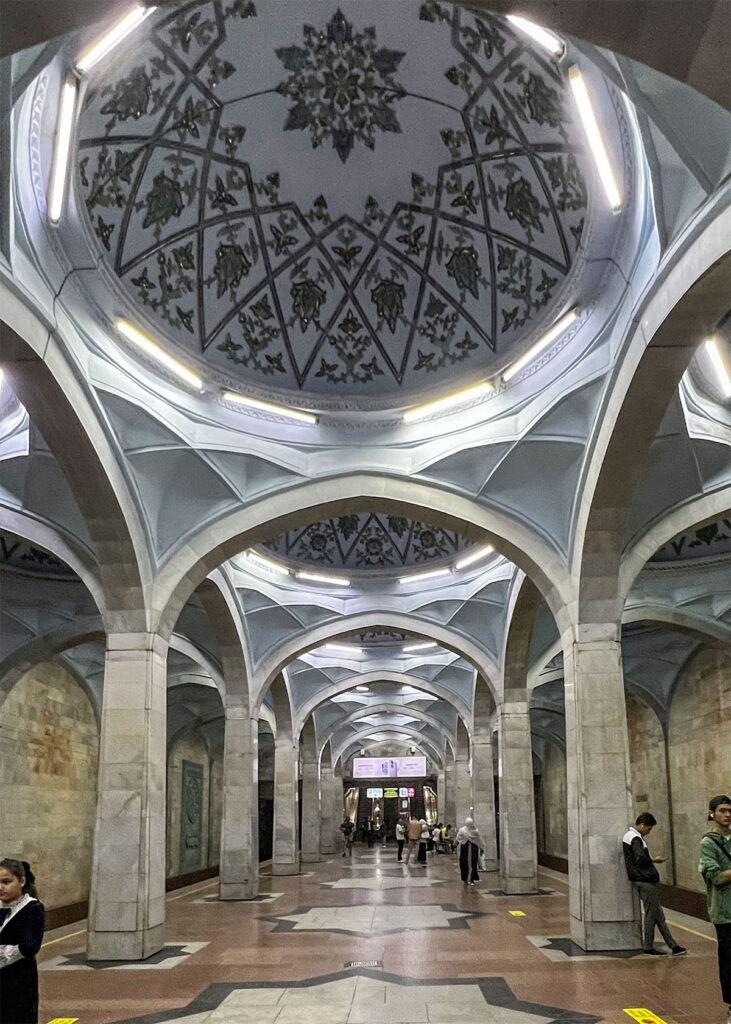
ATM’s are everywhere and most debit and credit cards are accepted. I could even use my Wise card, and got the local rate. But there are two kinds of places where I often found the ATM’s out of service: the airports and the train stations.
Since you’ll probably arrive by plane or train that could cause a problem. My experience is that drivers stop at an ATM en route to your accommodation, but it’s easier to arrive in Uzbekistan with some Uzbek SOM in your wallet.
6. Book high speed train tickets in advance
High speed train tickets sell out fast and it’s highly recommended that you pre-book your tickets. The other reason is the language barrier. Not everyone at the ticket booth speaks English so you might have trouble when you want to book a specific date, time or class.
It’s not easy to book your tickets online. I tried from different browsers, but failed every time during different steps in the process. I heard from other travelers I met on the train that they couldn’t work it out either.
Fortunately there is a solution. Buy your tickets through Advantour, a travel agency with an English website that pre-books the tickets for you.
7. The Yandex GO app doesn’t work for everyone
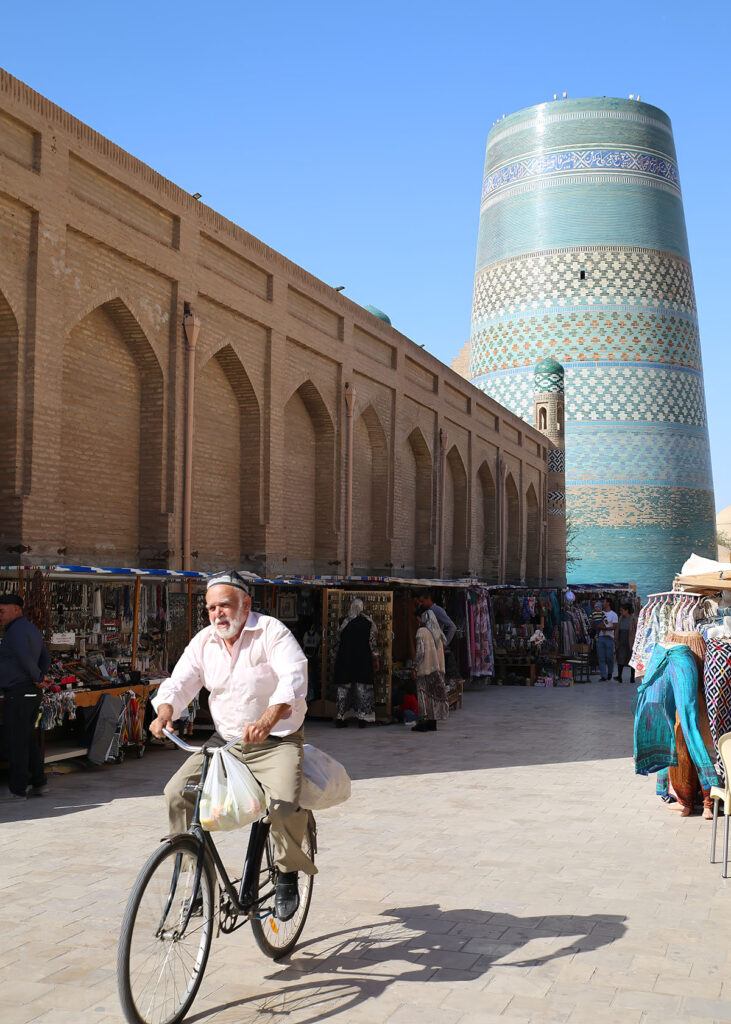
While prepping for my trip I read about using the Yandex GO app: the Russian version of Uber. They offer rides in the Middle East, Central Asia and a few Eastern European countries. Lots of bloggers told me that it’s a great service and how happy they were with the app. So of course, I wanted to try it out, since Uber is not an option in Uzbekistan.
I couldn’t download the app while still at home, nor after arriving in Tashkent and after activating my local sim card. I also tried using VPN, but unfortunately that didn’t work out either.
I did some research and learned that the app can only be downloaded in countries where Yandex is active. People outside the region who downloaded the app before March 2022 can also still use it, others can’t. This restriction started as soon as the sanctions against Russia went into effect.
The best way to hitch a ride is by asking your hotel to arrange one for you.
8. Tashkent is awesome
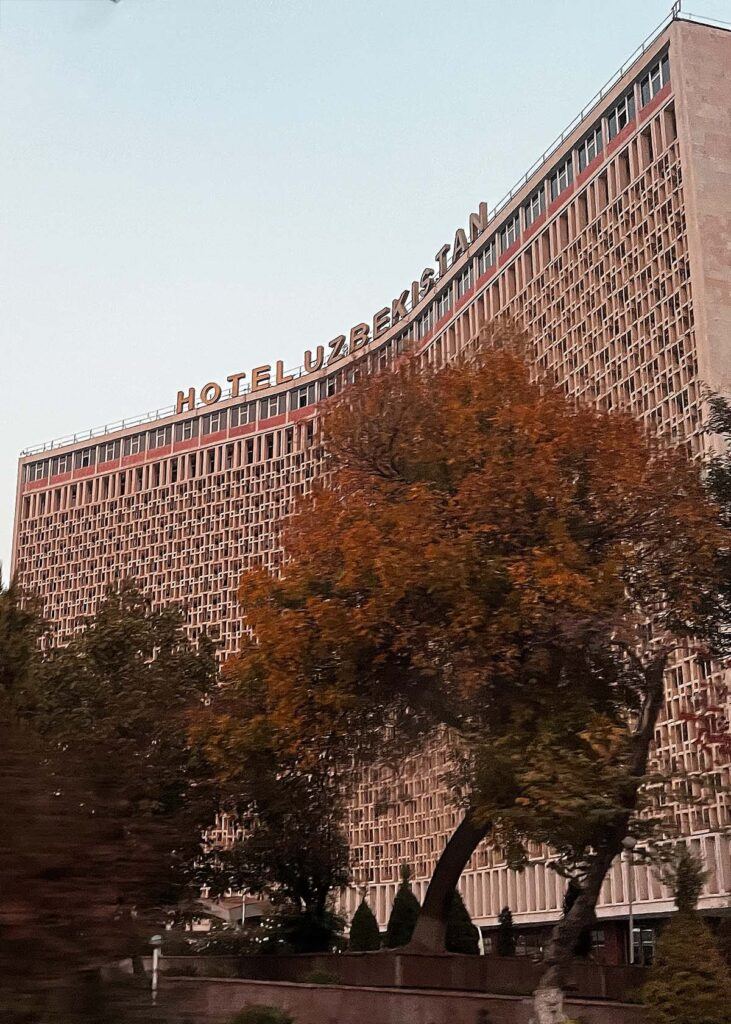
Tashkent is seen as a gateway to Uzbekistan’s Silk Road destinations. It’s overlooked by many in favor of destinations like Bukhara, Samarkand and Khiva. Soon after arriving in Tashkent, people travel to these Silk Road gems. And that’s a pity.
Tashkent is a vibrant city where you can easily spend 2 days. There’s so much to see and do and the people are very kind and helpful. I’ve never felt this safe in any other capital city in the world. Tashkent truly deserves more love from travelers. It is a city brimming with culture, architecture and great food.
Tashkent is very different from Samarkand, Bukhara and Khiva. The architecture is a mix of Islamic and Soviet buildings and not as exotic. And that makes the capital of Uzbekistan interesting. The vibe is different. By adding Tashkent to your Uzbekistan itinerary you get a taste of the present, while you relive the past in the others. This way you get the best of both worlds and really get to know the spirit of Uzbekistan.
9. Wash your hands before you eat
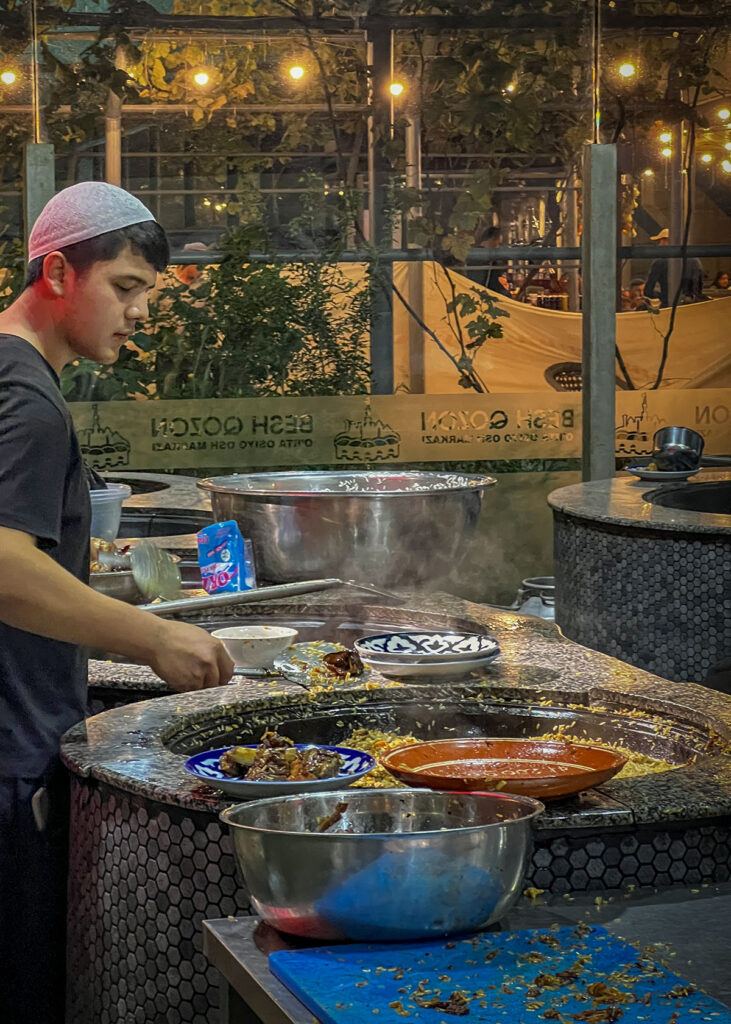
This seems like a weird thing to add to this list, right? Don’t we all wash our hands before a meal? I’d like to think so, but in Uzbekistan they go the extra mile to make sure everyone is clean before and after digging into a bowl of plov.
In most places in the world you’ll visit the toilet to wash up. But not in Uzbekistan. Near the entrance you’ll find basins and you’re expected to wash your hands before and after the meal.
The first time I didn’t notice the basin and just sat down at a table and used disinfectant before my meal. When I left I saw people washing their hands very thoroughly at a handwashing station. I followed their example and from that moment on I always looked for the basins when entering a restaurant.
10. Pre-book your accommodation
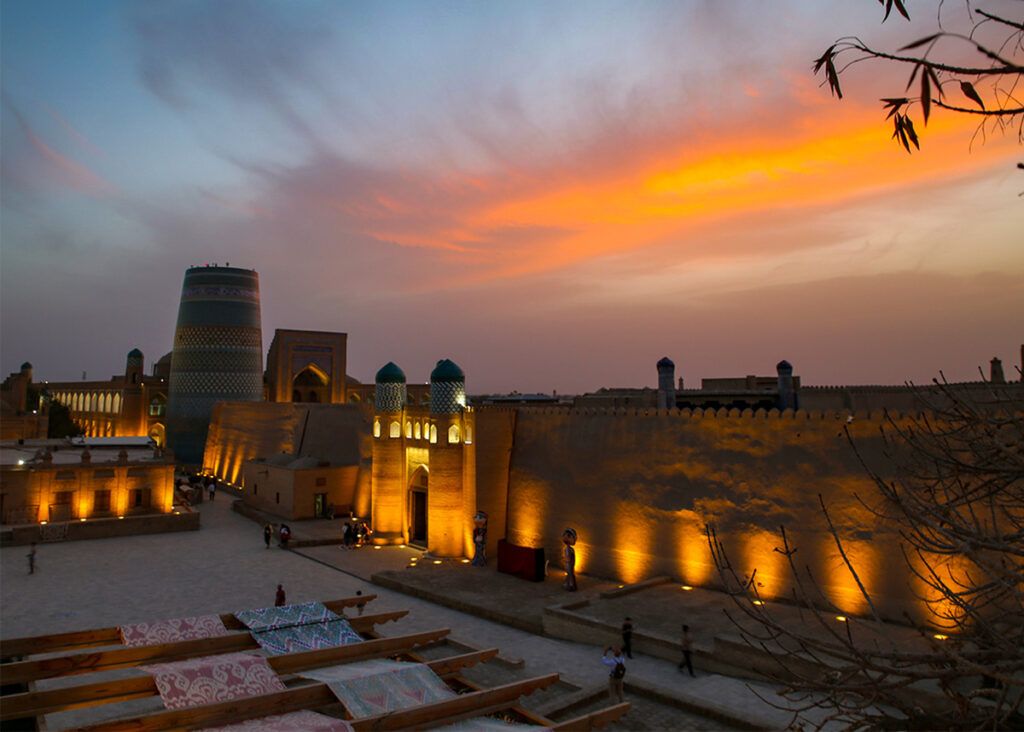
If you want to stay in the Old Town or near the biggest attractions in a city or town, make sure you pre-book your accommodation. Especially in Khiva and Bukhara.
Hotels located in beautiful traditional old buildings or the more modern hotels are quickly sold out. Make sure you pre-book several months in advance.
11. Keep hotel registration cards
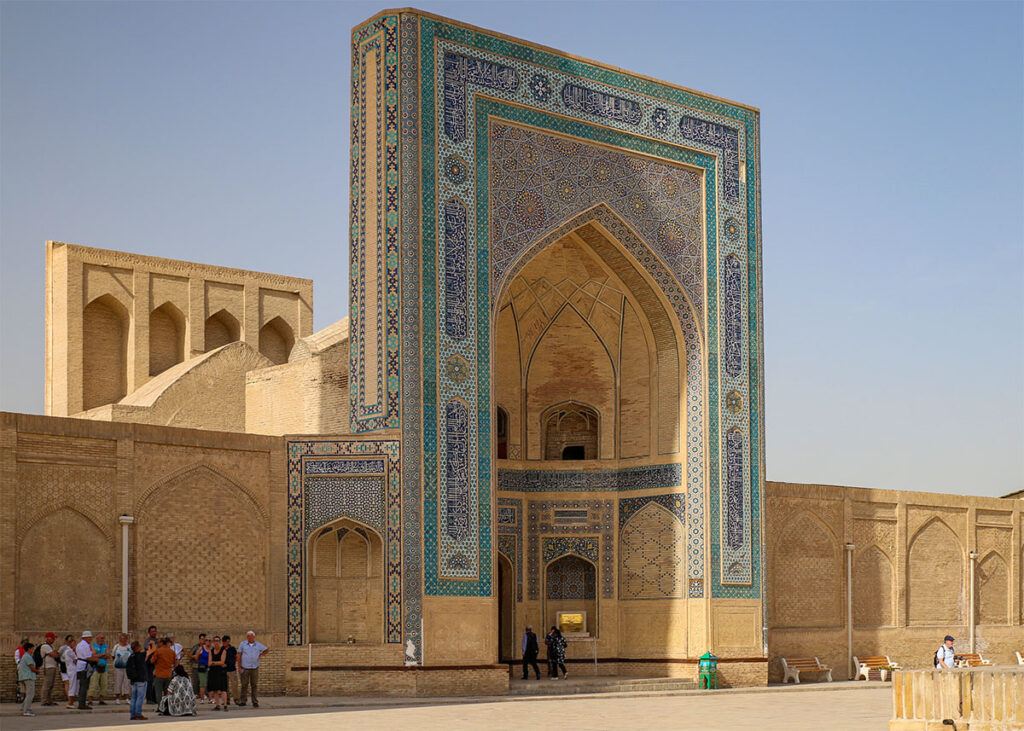
The first time I checked out of a hotel in Uzbekistan I received a registration card. It basically shows how many nights you stayed at the particular hotel. Don’t throw the cards away! You need to show them at passport control when you leave the country.
If a hotel doesn’t automatically provide you with one, make sure you ask for it yourself. They are obligated to fill it in and give it to you.
12. Tipping is included
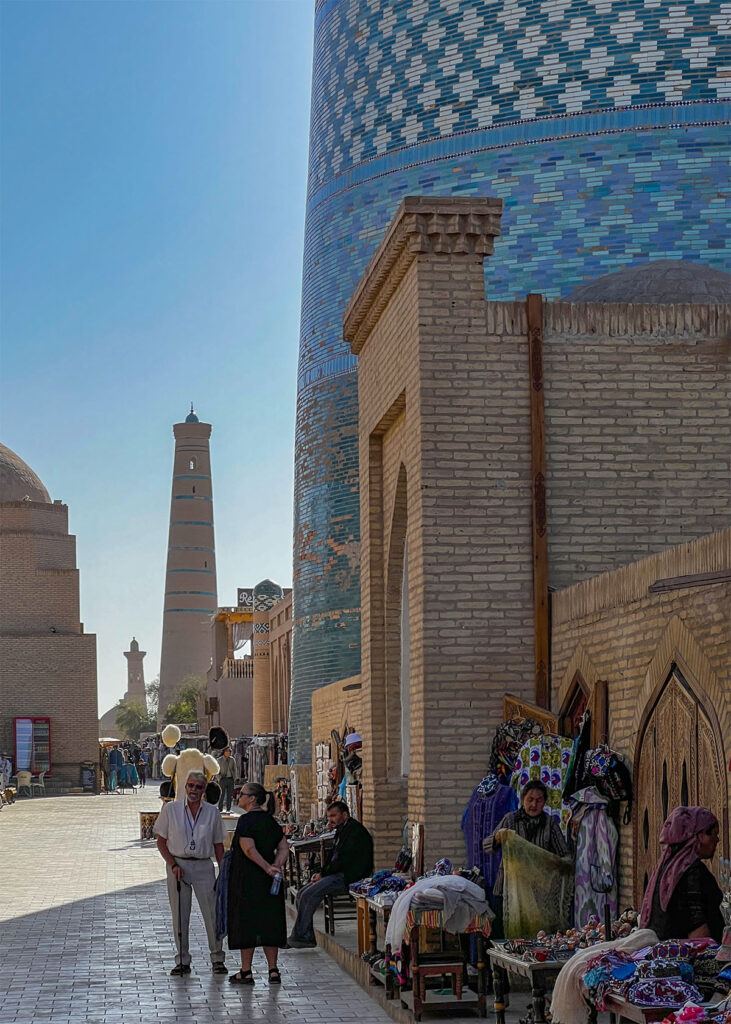
Always check your bills at restaurants and hotels, before leaving a tip. 90% of the time you’ll find that they’ve already included a tip.
Tipping elsewhere is not expected, but since average salaries are very low, a small tip of $0,50-$1 can go a long way. The exception is when you’ve booked a guide for a day, when 5% of the total price is appropriate.
Do know that some taxi drivers don’t like getting tipped. Most of the time they accepted a small tip. Twice I got the money back and they quickly walked away.
13. Wifi sucks, buy an eSIM
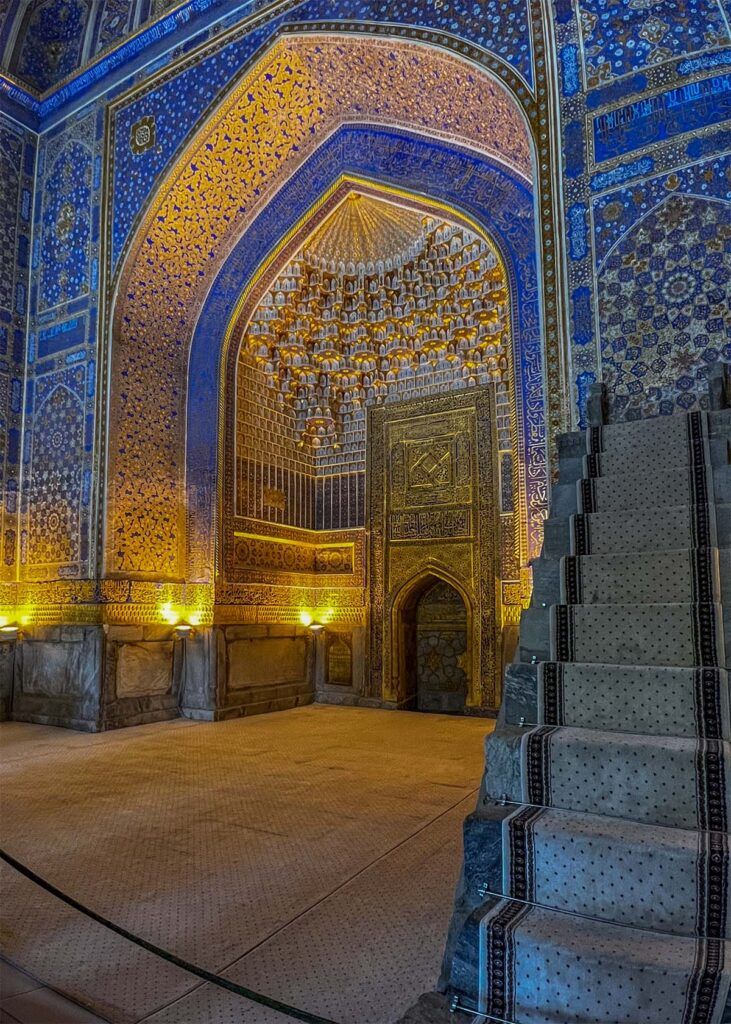
No matter where I went, wifi sucked. The only time I did have decent wifi in my hotel was when I splurged on staying in a 5-star hotel in Samarkand.
Get an eSIM and pre-install it, so it works as soon as you land in Uzbekistan. The other option is to buy a sim card at the airport in Tashkent, but the two times I was there the lines were very long and I was happy with my eSim.
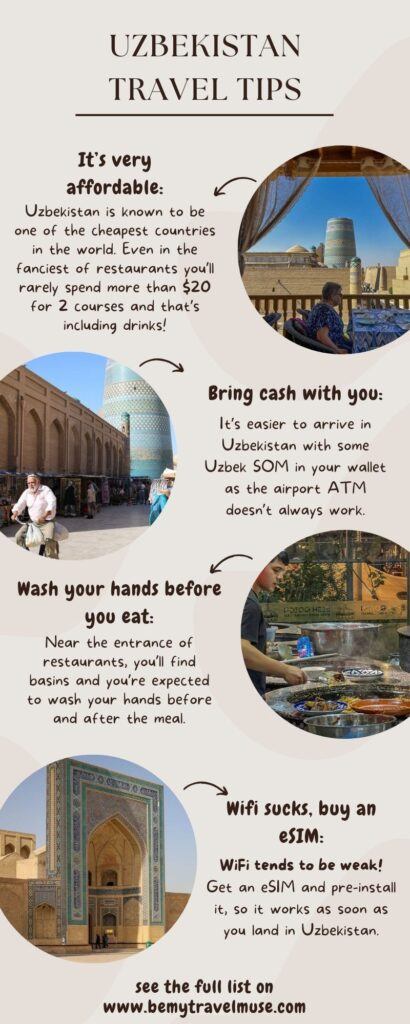
I hope that this post helped you understand what to expect from your trip to Uzbekistan and you’re ready to start planning your own trip to this breathtaking country. Is there anything else you’d like to know about visiting Uzbekistan? Let us know in the comments below!
About the author: Saskia is a family travel blogger and writer from The Netherlands. Her blog Sas Crossing Countries focuses on family travel, sharing some of the best tips on family road tripping all over the world. You can follow Saskia’s travel life, both solo and with family, on Instagram.
Discover more from Slow Travel News
Subscribe to get the latest posts sent to your email.


